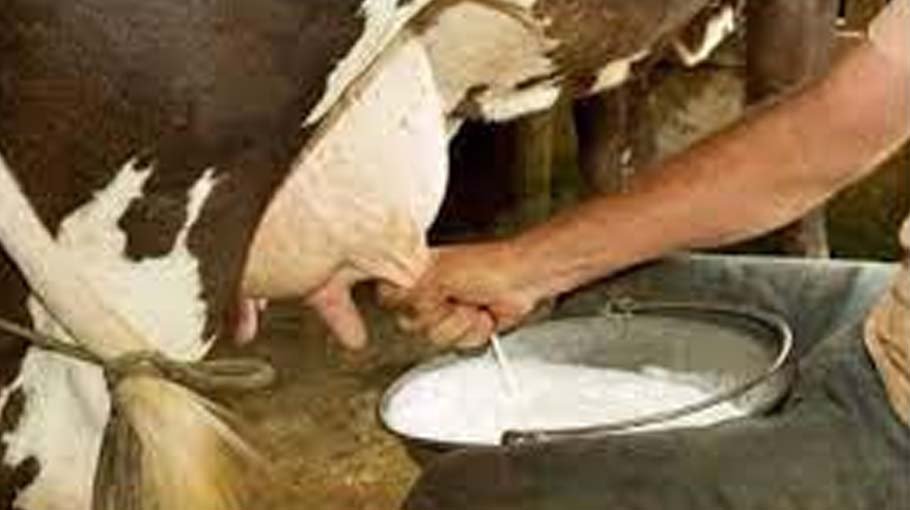World Milk Day today
Weather impacts milk production

Climate change can impact milk production of cows as research shows the amount and quality of milk a cow produces depends largely on the environment it is in.
Factors impacting milk production include weather, climate, and geography, according to a research paper of the USAID’s Feed the Future Bangladesh Livestock and Nutrition Activity.
The researchers say heat and humidity are the factors with the largest impact which affect the abundance and quality of feed, quantity and quality of milk, and feed prices and availability. Climates with milder seasons put less stress on cows than climates with more extreme weather.
“Conventional dairy farming is not sustainable. It pollutes and damages the environment through atmospheric GreenHouse Gas (GHG) emissions and other pollutants, causing negative impacts on climate and human health,” said Md. Hasibur Rahman, Additional Deputy Managing Director, The ACME Laboratories Ltd. Dhaka that conducted the research.
Several species contribute to livestock methane emissions, but cattle (beef and dairy) represent the largest share, at 60%, followed by pigs, chickens, buffalo, small ruminants, and other poultry.
Today, June 1, is World Milk Day. The theme of this year is “Sustainability in the dairy sector, as well as environmental, nutritional, and socioeconomic empowerment.”
Livestock is a key component of the agricultural economy of Bangladesh. It contributed to 1.47 per cent of GDP and 13.6 percent of agricultural GDP in 2018-19.
The annual production of milk in Bangladesh is 119.85 lakh metric tons which is less than the demand of 154.95 lakh metric tons.
The government has set a target to ensure at least 300 milliliter milk per head per day in Bangladesh by 2041. Apart from being a great source of nutrition, milk and dairy product production are a means of livelihood for millions of people across the globe.
World Milk Day has been celebrated all over the world every year since 2001. The day holds importance as it aims to increase public awareness and updates regarding all aspects of milk.
The Feed the Future Bangladesh Livestock and Nutrition Activity is a five-year, $20.5M activity funded by USAID and implemented by ACDI/VOCA.
The Activity strives to understand the change in the dairy sector and derive a strategy to promote amicable, affordable solutions. The Activity is a five-year activity and follow-on to the Feed the Future Bangladesh Livestock Production for Improved Nutrition Activity, also implemented by ACDI/VOCA.
The Activity will sustainably increase livestock productivity, marketability, and consumption of livestock products for the improved nutrition and incomes of one million livestock-producing households and firms in the 23 target districts in Feed the Future’s Zone of Influence and Zone of Resilience.
According to the researchers of ACME Laboratories, it is critical to meet the challenges associated with sustainability and food security, while also cutting GHG emissions and maintaining (or reducing) land use for livestock farming.
Transformation of livestock farming is key to address the issues of AMR, MDR, and environmental sustainability. Diversification of milk products is essential for increasing overall consumption of dairy products. Above all, concerted efforts by policymakers are imperative.
The researchers of the project recommended implementation of the “More from Less” (McAfee, 2019) concept. It means more productivity and profitability from less land area and herd size, and less antimicrobial usage to result in reduction of disease, production costs, water usage, and GHG emissions.
They also suggested implementation and uptake of climate-smart and gender-responsive farming practices.
Using appropriate disease preventative tools and methods has also been stressed by the researchers.
Training for human resource development and capacity building to reduce the negative impacts of Antimicrobial Resistance and climate change from livestock farming.
Other recommendations include: climate resilient and less-disease-prone cattle breeds need to be reared. Vaccination and deworming programs. Cost-effective Total Mixed Ration (TMR) usage to ensure increased productivity, sustainability, and reduced disease and environmental pollution.



